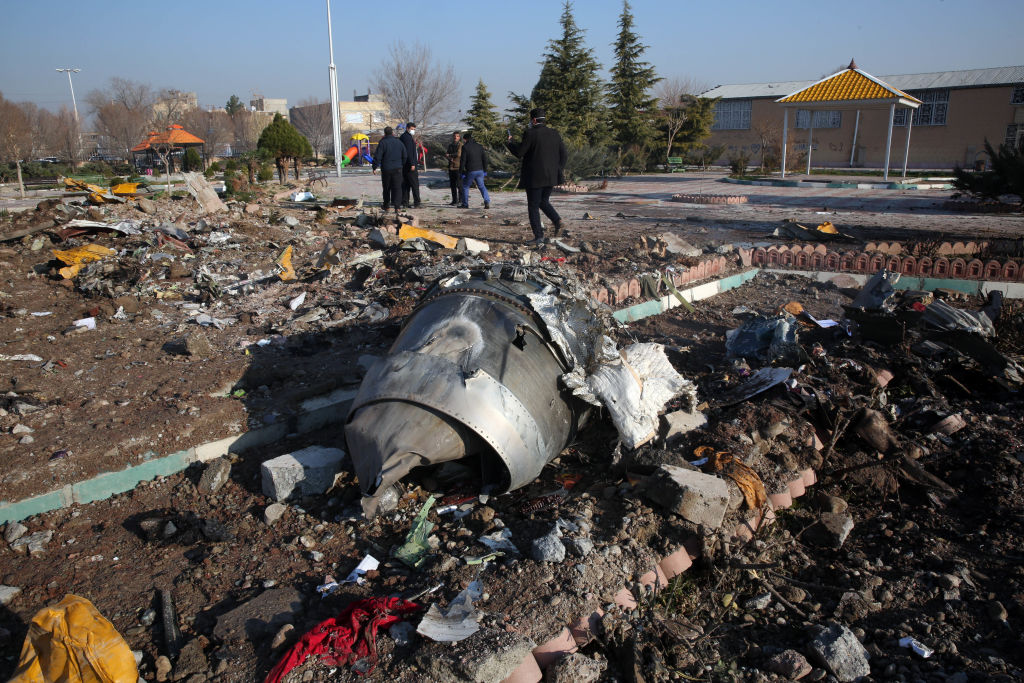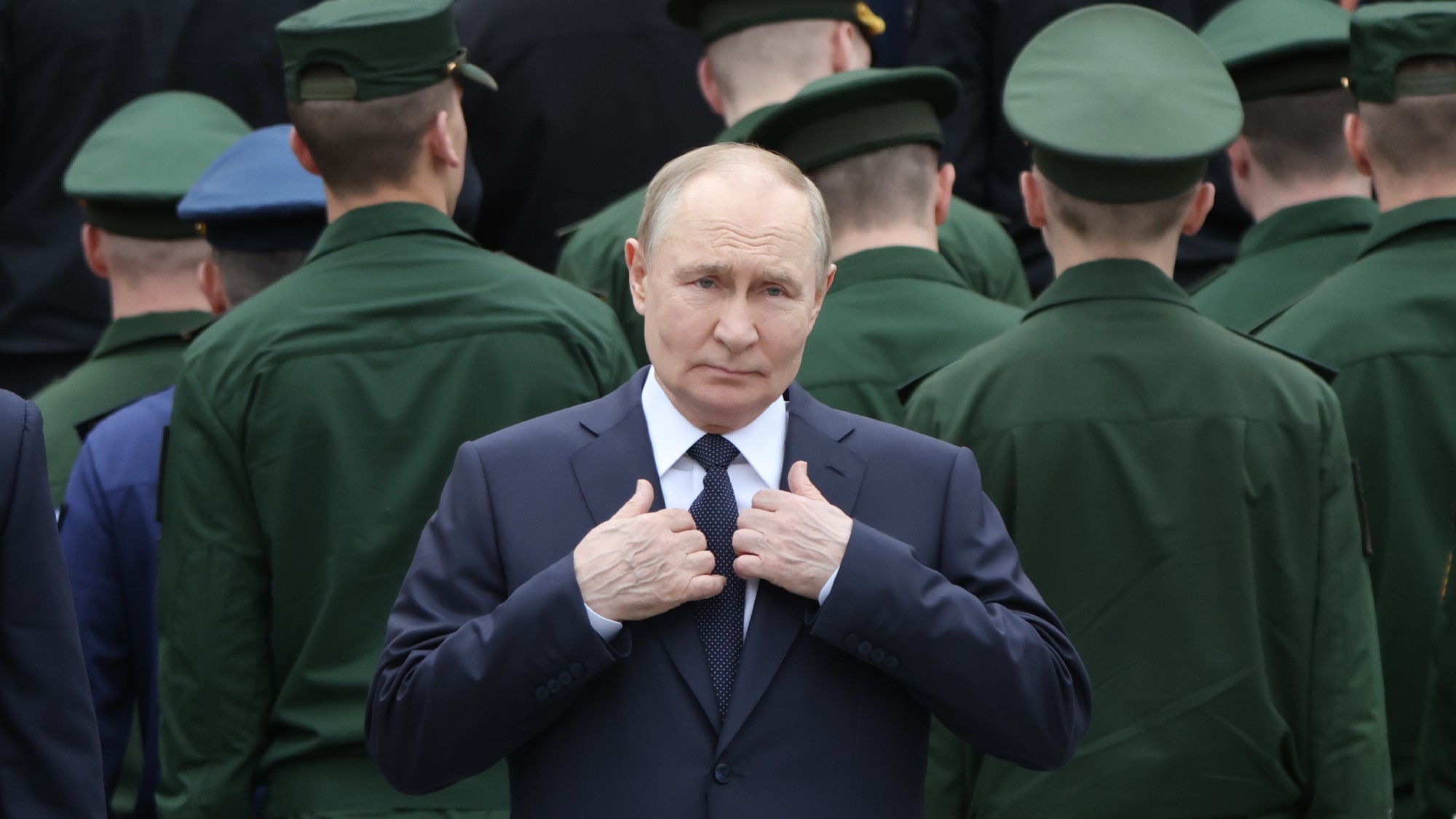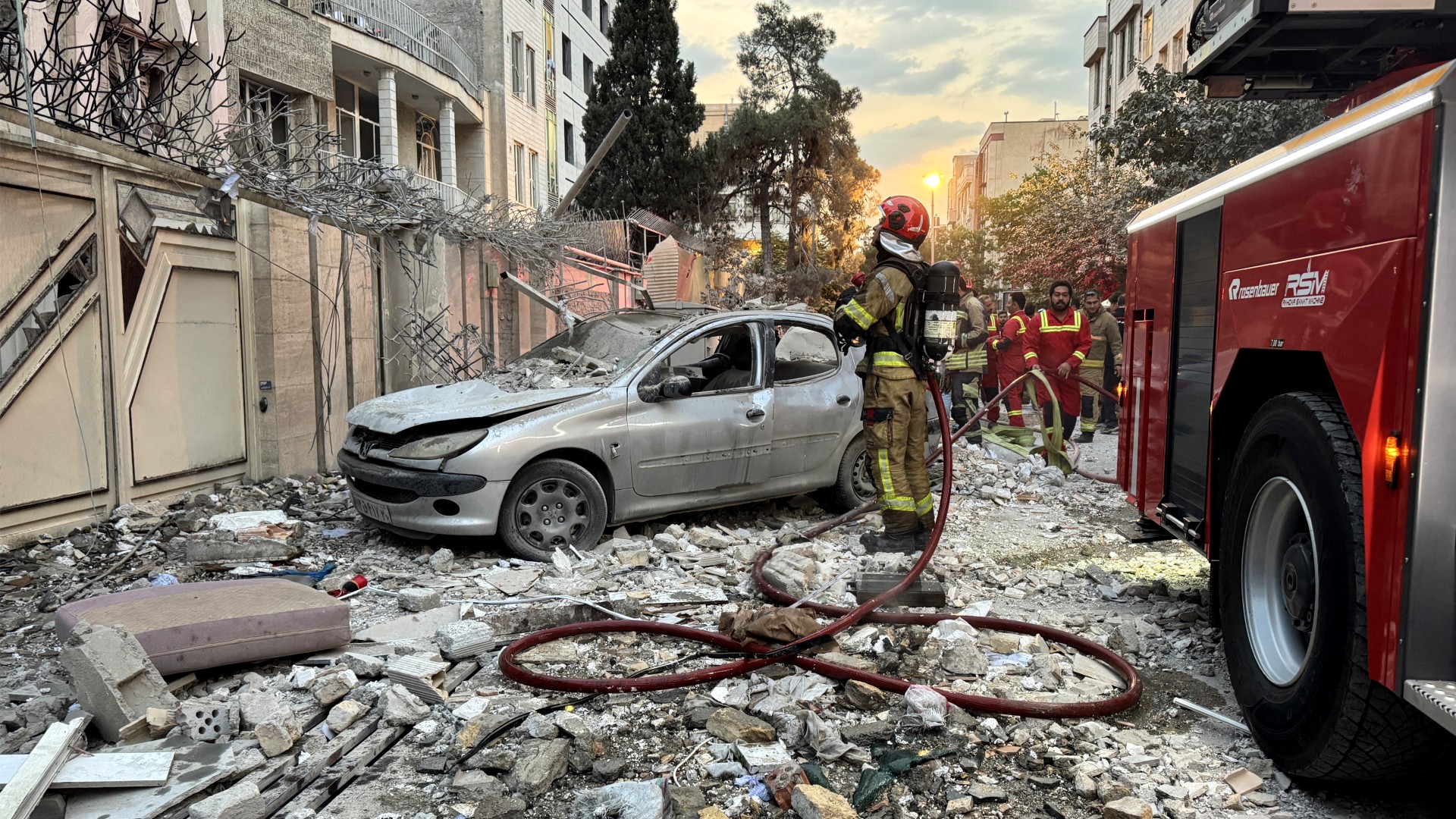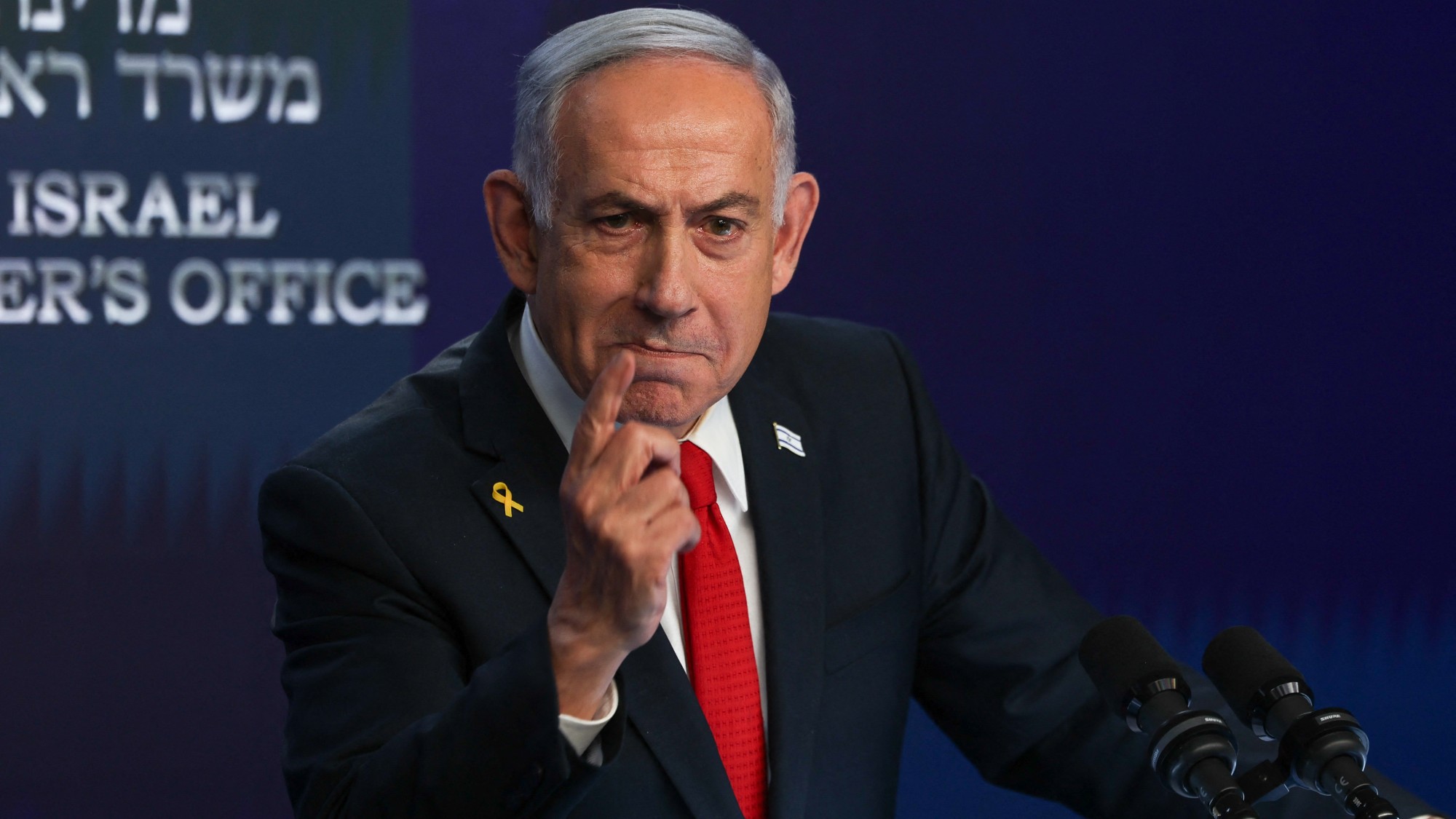Iran 'deeply regrets' shooting down Ukrainian plane, but partially blames 'U.S. adventurism'


A free daily email with the biggest news stories of the day – and the best features from TheWeek.com
You are now subscribed
Your newsletter sign-up was successful
Iran changed course Saturday, admitting to unintentionally shooting down a Ukrainian passenger jet with 176 people on board this week. But Tehran didn't want to let the United States off the hook for the disaster in its apology.
Iran's armed forces headquarters released a statement explaining that the Boeing 737 aircraft "came close to a sensitive [Islamic Revolutionary Guard Corps] military center at an altitude and flight condition that resembled hostile targeting," which prompted the fatal error. The IRGC took full responsibility for the incident, Iranian President Hassan Rouhani said Iran "deeply regrets this disastrous mistake," and Iranian Supreme Leader Ayatollah Ali Khamenei offered his "deep sympathy" to the victims, who were from Iran, Canada, Ukraine, Sweden, Afghanistan, Germany, and the United Kingdom. But Iranian Foreign Minister Javad Zarif did link the event to the U.S.'s decision to kill Iranian Major Gen. Qassem Soleimani in an airstrike in Iraq earlier this month. "Human error at [a] time of crisis caused by U.S. adventurism led to disaster," Zarif tweeted.
Ukrainian President Volodymyr Zelensky said Kyiv expects Tehran to launch a "full and open" investigation and "bring those responsible to justice." Rouhani said investigations and prosecution would continue. Read more at CNN and NBC News.
The Week
Escape your echo chamber. Get the facts behind the news, plus analysis from multiple perspectives.

Sign up for The Week's Free Newsletters
From our morning news briefing to a weekly Good News Newsletter, get the best of The Week delivered directly to your inbox.
From our morning news briefing to a weekly Good News Newsletter, get the best of The Week delivered directly to your inbox.
A free daily email with the biggest news stories of the day – and the best features from TheWeek.com
Tim is a staff writer at The Week and has contributed to Bedford and Bowery and The New York Transatlantic. He is a graduate of Occidental College and NYU's journalism school. Tim enjoys writing about baseball, Europe, and extinct megafauna. He lives in New York City.
-
 6 exquisite homes with vast acreage
6 exquisite homes with vast acreageFeature Featuring an off-the-grid contemporary home in New Mexico and lakefront farmhouse in Massachusetts
-
 Film reviews: ‘Wuthering Heights,’ ‘Good Luck, Have Fun, Don’t Die,’ and ‘Sirat’
Film reviews: ‘Wuthering Heights,’ ‘Good Luck, Have Fun, Don’t Die,’ and ‘Sirat’Feature An inconvenient love torments a would-be couple, a gonzo time traveler seeks to save humanity from AI, and a father’s desperate search goes deeply sideways
-
 Political cartoons for February 16
Political cartoons for February 16Cartoons Monday’s political cartoons include President's Day, a valentine from the Epstein files, and more
-
 How long can Nato keep Donald Trump happy?
How long can Nato keep Donald Trump happy?Today's Big Question Military alliance pulls out all the stops to woo US president on his peacemaker victory lap
-
 How far would Russia go for Iran?
How far would Russia go for Iran?Today's Big Question US air strikes represent an 'embarrassment, provocation and opportunity' all rolled into one for Vladimir Putin
-
 How the Israel-Iran conflict broke out
How the Israel-Iran conflict broke outThe Explainer Israel's strike on Iran's nuclear and missile programmes was years in the planning
-
 Will the UK get involved in the Israel-Iran conflict?
Will the UK get involved in the Israel-Iran conflict?Today's Big Question Keir Starmer is 'walking a tightrope' in helping Israel limit Tehran's nuclear capabilities without being seen to do so
-
 What happens if Israel attacks Iran?
What happens if Israel attacks Iran?TODAY'S BIG QUESTION Israel is 'ready to strike' and Tehran has plans for counterattacks against the US as nuclear talks appear deadlocked
-
 Russia and Iran 'up the ante' after meeting in Turkmenistan
Russia and Iran 'up the ante' after meeting in TurkmenistanThe Explainer Two nations talk up their closer ties but some in Tehran believe Putin 'still owes' them
-
 Israel's wars: is an end in sight – or is this just the beginning?
Israel's wars: is an end in sight – or is this just the beginning?Today's Big Question Lack of wider strategic vision points to 'sustained low-intensity war' on multiple fronts
-
 Iran and Israel: is all-out war inevitable?
Iran and Israel: is all-out war inevitable?Talking Points Tehran has vowed revenge for assassinations of Hamas and Hezbollah leaders, but Gaza ceasefire could offer way out
